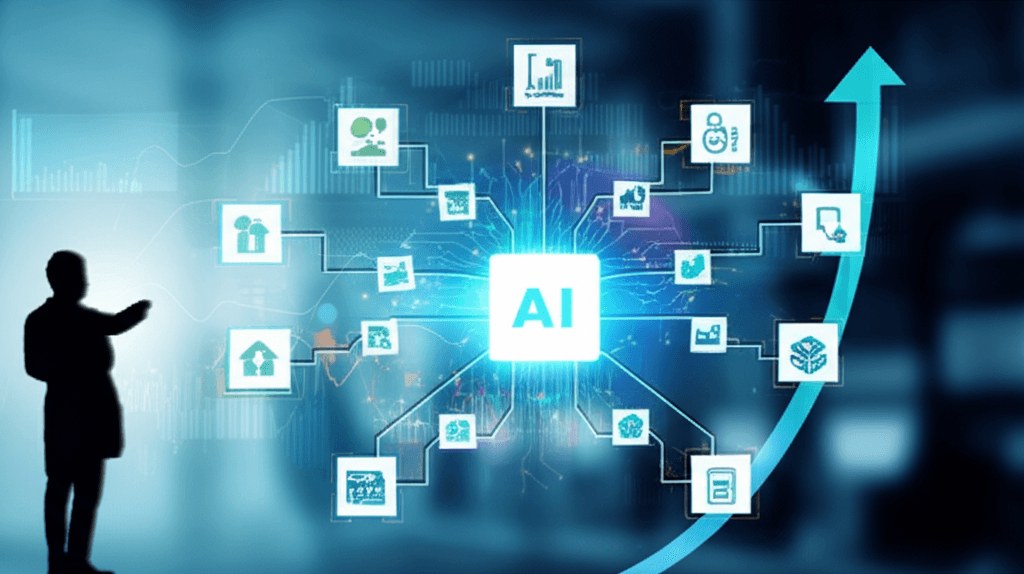IBM's Agentic AI Drives Enterprise Transformation with Autonomous Agents
Beyond experiments: IBM's agentic AI empowers a new digital workforce for measurable enterprise outcomes, exemplified by Lloyds.
June 11, 2025

IBM has articulated a significant strategic direction for artificial intelligence, focusing on the concept of "agentic AI," at the AI Summit London. This vision emphasizes the development of AI systems that can proactively collaborate, reason, operate autonomously, and orchestrate complex workflows across various business functions and data sources.[1][2][3] The company's announcements signal a move beyond experimental AI to enterprise-scale, value-driven implementations. A key illustration of this approach is IBM's ongoing partnership with Lloyds Banking Group, which was showcased as a prime example of how AI can deliver tangible business outcomes and transform operations within the financial services sector.[4][5] IBM executives at the summit stressed that the era of simply experimenting with AI is over, and the focus now is on integrating AI to achieve measurable results and a competitive advantage.[2]
The core of IBM's agentic AI strategy revolves around its watsonx platform, particularly watsonx Orchestrate.[6][2][7] This platform is designed to enable businesses to build, integrate, customize, and deploy AI agents that can automate tasks, make decisions, and interact with other systems and even other AI agents with minimal human intervention.[6][7][8] These agents are not envisioned as standalone tools but as interconnected components within a broader "semantic operating system" for AI.[1] This allows for interoperability and composability, meaning businesses can connect various agents, including those from third-party providers, across different platforms and workflows, whether on-premises or in the cloud.[1][2] IBM highlighted that these AI agents can be specialized for specific domains like HR, sales, and procurement, or can be "utility agents" for simpler tasks like web research and calculations.[2] The goal is to create a digital workforce that augments human capabilities, streamlines operations, and drives productivity by moving from a "human-in-the-loop" to a "human-on-the-loop" management style.[6][1] This approach is underpinned by a commitment to open standards and an architecture that encourages a diverse ecosystem of agents.[1]
The collaboration between IBM and Lloyds Banking Group serves as a concrete example of this agentic AI vision in action, particularly in enhancing customer service and operational efficiency.[4][5] Even before the widespread attention on Large Language Models (LLMs), the two companies were working to leverage foundational and generative AI models to understand customer needs better and reduce manual effort in managing AI-driven engagement.[4] The partnership has focused on transforming the bank's customer engagement channels, using AI to derive actionable insights from every customer interaction.[4] Specifically, by utilizing IBM's watsonx Assistant, Lloyds Banking Group transformed its existing chatbot into a virtual assistant LLM classifier that significantly improved the accuracy of query resolution, reportedly seeing upwards of 91% of customer queries answered correctly, a notable increase from the industry average.[5] This initiative led to a 25% increase in query resolution success within three months and an estimated £1 million per year in cost savings due to the LLM classifier.[5] Furthermore, the implementation of an LLM solution resulted in an 80% reduction in manual effort and an 85% increase in the accuracy of classifying misclassified conversations.[9] This demonstrates a tangible return on investment and a clear path from AI experimentation to value-driven transformation.[4][5]
The implications of IBM's agentic AI strategy extend broadly across the AI industry and various sectors. By championing open standards and interoperability, IBM is positioning itself as an enabler of a more interconnected and less siloed AI ecosystem, where businesses are not locked into vendor-specific solutions.[1][2] This approach could accelerate the adoption of AI by making it easier for enterprises to integrate and manage AI agents from different sources.[2][7] For industries like finance, the ability of agentic AI to handle complex, multi-step processes, reconcile transactions, flag anomalies, and generate reports autonomously promises significant efficiency gains and cost reductions.[6] The emphasis on "digital labor" also suggests a fundamental shift in how businesses approach operational costs, with AI agents potentially taking over a larger share of routine tasks, allowing human employees to focus on more strategic and complex work.[1][8] However, this shift also brings challenges, such as ensuring coordinated execution, visibility, and governance across a potentially sprawling ecosystem of AI agents.[7] IBM aims to address this with watsonx Orchestrate, providing a centralized platform for deploying and managing these agent-driven solutions.[7] The success of such strategies will ultimately depend on creating synergy between people and AI across virtually every operational transaction and communication.[8]
In conclusion, IBM's unveiling of its agentic AI vision at the AI Summit London, underscored by its successful partnership with Lloyds Banking Group, marks a clear strategic push towards enterprise-grade, outcome-oriented AI. The focus on autonomous, collaborative, and orchestrating AI agents, facilitated by platforms like watsonx Orchestrate, aims to move businesses beyond mere AI experimentation into full-scale operationalization.[2][3] The Lloyds Banking Group case study provides compelling evidence of the potential for significant improvements in customer service, operational efficiency, and cost savings through this approach.[4][5][9] As IBM champions open standards and interoperability, its agentic AI strategy has the potential to reshape the AI landscape, fostering a more collaborative and composable ecosystem.[1] This evolution towards sophisticated digital labor presents both substantial opportunities for businesses to enhance productivity and innovation, and challenges related to governance and the evolving human-AI workforce dynamic.[7][8]
Sources
[2]
[3]
[4]
[5]
[7]
[8]
[9]